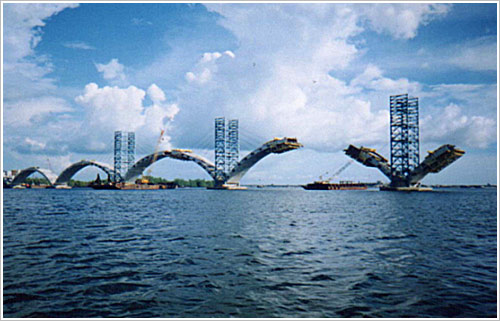When a major construction project rears its head, the contractor involved in the project can be the difference between processes that are pain-free and nightmarish. Many individuals and businesses have expectations of a construction project or remodel that need to be met in order to minimize inconveniences and other ill-effects that can befall a homeowner or business. A contractor’s ability to meet those standards is paramount to both sides.
But while all contractors will want to assure prospective clients that they can meet whatever requirements and/or restrictions placed upon them, anyone with experience working with construction contractors knows this isn’t the case. The key to a successful construction project is knowing what criteria and steps are essential to choosing the right contractor. Considering contractors with a construction management degree is the first step.
Here are five other key criteria that should be assessed in every contractor before a bid is awarded:
Do a background check
This is something that can be done even before a contractor is approached. Prospective clients can consult state departments governing construction licensing to confirm that a contractor’s license and insurance are both up-to-date. Insurance policies should cover at least $1 million in liabilities, and the more, the better. Safety certificates and worker’s compensation are also beneficial to both the contractor and the client, eliminating headaches and providing extra security.
Clients should also be able to find out whether the license has been suspended in the past or whether any serious claims against the contractor have been filed.
Request a bid
The cost of a construction project is paramount to any client, particularly if there are tight budget constraints involved. Contractors base a bid on a number of factors, including costs, labor and time required. In some cases, depending on how busy they are, contractors dealing with a heavy workload may be more inclined to offer a higher bid because they won’t be desperate for the work.
Although bids can be negotiable, a starting bid can be indicative of the final price, and it can also show how badly a contractor wants to win the project. Eagerness and excitement in a contractor shouldn’t be overlooked, particularly in a market where building construction has continued to suffer along with the recession.
Talk to past clients
The value of references and customer feedback can’t be overstated for a business trying to choose the right contractor. Although many contractors may look equally attractive before the project begins, things can be very different when the project is underway. Getting a sense of what the contractor is like to work with can separate the best from the rest of the pack.
Identify costs and fees covered
One common way customers end up dissatisfied with their selected contractor is when they get the bill at the end of the job. When a bid is submitted, it is an estimate of the end costs of a project, meaning that the actual cost may differ slightly. Clients need to make sure they know what costs will be covered by the contractor, including the payment of various permits and fees, materials, cleanup and other aspects of the job. This is often clearly laid out in the construction agreement signed before the job begins, but some clients fail to read through the details and understand exactly what they’re agreeing to. Failing to read the fine print can be a costly mistake.
Consider timeliness
Although delays are inevitable, and more likely the bigger the project, most businesses can’t afford to have a construction project get delayed by weeks or months. Most businesses investing in a construction are at risk of losing money through those delays.
With that in mind, it’s wise not only to check out a contractor’s track record on past projects, but to also get reassurances from the contractor in terms of financial incentives or even a penalty paid if they fail to meet the deadline. Such an incentive could greatly reduce the odds of a missed deadline and provide some financial protection if the project gets delayed.


